- Home
- Alice Hoffman
The Dovekeepers: A Novel Page 4
The Dovekeepers: A Novel Read online
Page 4
There was an echo of footfalls, and I froze until they vanished. I returned to our camp, cleansed but on edge. Everyone was sleeping inside our small goatskin tent, which was fastened to the ground with bolts made of horn. Only Ben Simon was awake. He seemed restless. I flushed to think perhaps he had seen me at the pool. He called me to him, and I went, my eyes lowered.
“It’s dangerous,” he warned.
He had never spoken to me before. I didn’t know if he meant there was danger in walking in the wilderness alone or in raising my eyes to meet his. I felt outraged that he might think he could tell me what to do, treating me as he would a child, or worse, his slave, and yet I felt a flicker of pleasure when I noticed the spiky green leaves in his hair. They were from the tamarisk that grew by the pool, a tree that lifted its boughs toward heaven in a place where nothing else could survive.
TWENTY-ONE CUTS and then the night when it happened. Afterward I wondered if I had been marking off the time until it did. Was that what I was waiting for? Was that where my desire had led me? Perhaps I had peered into the Book of Life, which metes out fate, and while in the depth of my slumbers I had seen his name written there. Or perhaps it was only that I was an envious girl who had nothing, and was therefore willing to take what belonged to another woman, one who was my only friend.
I was building a fire to cook our meal of lentil cakes on the griddle I’d brought with me from Jerusalem. He crouched down next to me. The sky paled with heat. The larks were flying in the dim light, and great colonies of bee-eaters were calling, their brilliant blue feathers slicing through the hazy air. Jachim ben Simon was more commanding than most men and I could feel the heat of his presence beside me. He didn’t look at me this time. Instead he reached down and ran his hand along my leg, lingering over the cuts I had made until my skin seemed on fire.
“You’re not afraid of the things other women fear,” he said.
I realized this was true. He still wasn’t looking at me, but he seemed to know me, even though I was hidden inside my veils. Most women feared for the lives of their children and husbands. Their concerns were starvation, illness, demons, enslavement. I feared the lions in my dreams, half-believing I would be devoured by one of the creatures that stalked through my sleep. I was afraid an angel would be waiting for me in the desert, sent there to tell me that my life was a ladder of mistakes, that I was born a murderer, responsible for the death of my own mother before I took my first breath, that my crime was worse than that of any assassin, for I was guilty not only in the eyes of my father but in the eyes of God.
Ben Simon took his hand away, but I could still feel the heat of his touch. I felt it for days. Did that mean he was an angel, hidden among us, there to judge me? Or was he only a man who wanted to satisfy himself?
*
WE WERE nearly going blind in the white light that pierced through our tent during the most brutal hours. Travel was impossible in the heat of the day, for the winds were merciless and could cut a man to pieces. We were city people who had strayed in the wilderness, wanderers with no direction, stranded in the territory of robbers, and thieves, and holy men. Emptiness was the name of the desolate land we crossed. We saw no one. When the pool of pale water disappeared into the sand, when even the mud left behind became hard-baked and dry, there was no reason for us to stay in our camp.
We packed up our few belongings—the goatskin tent, the handheld spindles we used to spin wool, our knives and the griddle, a jar in which there was still some oil, the lamp that we burned to mark the Sabbath, though there was little enough oil to do so. We moved on, searching for water. We ventured onward beneath the inky sky in the early mornings, during hours that were less brutal, before the sun emerged from the dark. Our route led us to a well, but it was dry. It led to an orchard, but it was barren. Olive trees had withered here, their silvery bark turned to empty shells. It was said that the nomads who crossed this wilderness were often forced to kill their camels and drink hot blood when their thirst could not be contained. There was no grass, and even the herds of ibex, wild goats who were unafraid to race across the rockiest cliffs, didn’t often venture into this harsh land. Only the leopards came here. Though they were mysterious and rare, we occasionally spied paw prints. These were the fastest animals in all creation, unearthly in their beauty, but they journeyed alone. Only those who lived cut off from all others of their kind would come here.
We went forward, believers with nothing to believe in. Our lips were so dry they cracked and turned white. Sia rubbed the last of the olive oil on her sons’ mouths, so their lips would not bleed. The days piled up like twigs, bent and useless. At last we found a cave to shelter us from the light and wind. There was a pool of still water, murky, with a lacy film across the surface, unclean, yet we put our faces into it like dogs. The east wind, Ruach Kadim, came up from Edom, flaming with heat. We wound ourselves in linen scarves, thin fabric made from flax, cooler than wool, perhaps because the reeds from which this fabric was made from had grown in marshes and carried water in the thread. We veiled our faces, making sure to keep our hands over our ears. Even then we couldn’t drown out the sound of the desert; the howling railed against us like a living being.
WE STAYED in the cave for days on end, too spent and parched to go on, afraid of meeting with the Roman garrison that patrolled the desert. We burned bits of the thornbushes we found to frighten away the jackals. A drift of white smoke rose from the mouth of the cave, the ash catching in our eyes and throats. The assassins hunted, but they found no game. They prayed, but there was no relief. I still cut my leg with a sharp rock. If I didn’t keep track of my life, no one else would. As time passed we began to starve. Again I wondered who among us could outlast the others. Our hunger kept us rapt and exhausted. We slept so many hours I could not tell the difference between my waking life and my dreams. I dreamed of Jerusalem and of my mother and of the flame tree in the marketplace. Those images were more real to me than the foul stink of the cave. Secretly, I had begun to eat the damp earth where moisture gathered near the rocks. My skin turned dusky, and it appeared that the desert was spilling out of me, the way they say sand pours out when you stab a demon with a knife that has been blessed and cleansed in pure water.
One night my father and Ben Simon slit the donkey’s throat. There are those who say animals have no spirits, but I heard the donkey scream. It had a voice like any man or woman, one that begged for breath and life. When I ran out to the cliffs, I could still hear its echo. The men said a prayer thanking God for what they had convinced themselves had been an easy death for the poor creature, for they’d used a ritual knife; then they made a fire out of a pile of twigs and roasted the meat. I could see pools of the donkey’s dark blood on the hillside below our cave. The stars were above us in the sky. Some could be seen quite clearly, others were hidden in the murk of the darkness. We waited for the morning star, which we named Cochav hashachar and others called Venus, looking for it to break through the sky in bands of pale, shimmering light and give us one more day.
After we ate, I felt defiled. The donkey’s bones simmered in a pot over the fire so that we might have food until the next Sabbath if we doled it out in scraps that we wolfed down. We were like people who had gone backward, barbarians in the desert. There were nomads who lived in this way; we saw evidence of them sometimes. They were wild men, pagans, their faces painted, their spears double-edged, their calls to each other the bleating of savages. Their lives depended on their camels, who gave them meat, and milk, and shelter when the tanned hides were stretched into tents. Their women gave birth in the sand, staining it slick and black; their dead were left on the rocks for the carrion; their men were exceedingly dangerous, for they had their own codes. No one who got in their way was spared. Some of these men had six wives, and the women were kept like donkeys, mistreated, used for bargaining.
Ben Simon had come upon the bodies of two of these wives. They were little more than children, likely not yet old enough to bleed with t
he moon. They had tried to run away from their circumstances and had fled as far as the desert would allow. Ben Simon discovered them when he was out hunting; they were buried beneath drifts of sand and stone, holding hands, their eyes staring, open to the World-to-Come. Both had coils of long black hair and wore the indigo-tinted scarves of their people. They had lain down to wait for death the way a bride waits for her bridegroom, the palms of their hands and the soles of their feet adorned with henna in intricate patterns of the thania ceremony, so that they might bring luck to the man they married. Perhaps they had been misused by their husband with no recourse or he had cast them aside. Perhaps they had run off together before the wedding ceremony and had lost their way.
I was cleaning out the cooking pot when Ben Simon signaled to me. I followed him even though we hadn’t spoken since he’d warned me of danger. He brought me to see the two wives. We did not speak, or even look at each other. I wondered why he’d chosen me to share this knowledge, why he had revealed to me that when the dust rose up and the dead were before him, this fierce assassin, who had murdered so many, who had washed the blood from his hands night after night, whose face was torn in two by a ragged scar, had tears in his eyes.
We stood under the darkening sky at the hour when the earth turns deep blue. It was the time when those who wander often see mirages, swearing the rocks they walk upon have become the sea. Perhaps the two child-wives had thought themselves rescued by the sea of the dead, preferring it to the lives that they led, in which they were kept like beasts, traded like pieces of silver. I suddenly understood that Ben Simon was telling me he would never drive me to such an end. He would protect me and care for me. My fate was revealed as he tenderly buried those two sister-wives as surely as if the Book of Life had fallen open before me.
I would never want to run away from him.
EVERY NIGHT I curled up in the cave, awake long after the others had fallen asleep. I was not the only one who kept my eyes open. Jachim ben Simon came to me late one night. He lay down beside me, his arms around me. I had been waiting for him, but now I was too stunned to move or cry out. He looked at me even more deeply than he had at the well where there’d been no water or at the grave of the two wives. I knew that he truly saw me. He saw that I was accustomed to doing whatever a man told me to do, that I had followed my father out of Jerusalem without a single question. But there was more inside me, and he saw that, too. He saw that I was burning, and that I was alone, that I was trapped by the lion in my dreams, and the angel I was waiting for, and the burden of my birth.
We would probably die before long. Our bones would be white upon the white rocks. We would be clawed at by eagles, taken by jackals. We would rise into the wind and become ashes. But not now. Not yet. We were still alive. Ben Simon slid his hand inside my tunic. There were deep blue veins in his arms that I could see through the dark. I could feel his sex against me, aroused. I was terrified that he might tear me in two. All the same, I didn’t try to stop him. I was burning the way the leaves of the pomegranates burn in the month of Av. They’re green one instant, in flames the next. Sia had been right. I was like the flame tree: the more I burned the more alive I became. If she’d leaned closer to me, she would have noticed the scent of fire and been forewarned, instead she took me to be her friend.
Ben Simon moved his hand between my legs. I heard myself gasp. He quickly covered my mouth with his free hand. The others were on the far side of the cave; they must not hear. He whispered that silence was the only thing he would ever ask me for. I nodded, and he moved his hand away from my mouth. My lips were hot from his touch. I wanted to know one thing before my vow of secrecy, before my words were swallowed and my promise kept. I could feel the spell of silence claiming me, but before it was complete I had only one question. I wanted to know how he had come to have a scar on his face. It seemed a secret to me, and if I knew his secret, I might know him, and then he might belong to me even though he was Sia’s husband.
He said it was the mark of a lion. He flinched when he spoke of the memory. The Romans had captured him outside the Temple when he was young and unmarried. He was tall and well muscled, with strong arms, exactly the sort of man they wanted. They were searching for gladiators and had therefore devised a test. They locked ten men in a room with a lion. Whoever survived would be sent to Rome. The first nine were killed, but when it came to this man who lay beside me, the lion had cut him once across his face, then fallen at his feet. The creature had died a sudden death, collapsing all at once, splayed out upon the tiled floor. Perhaps the lion had been wounded in his other encounters, but Ben Simon announced to the soldiers that he had slain his foe with one look. It was such a strange sight that the Romans, now puzzled and confused, took to discussing the possible causes of this odd circumstance. It was then Ben Simon managed to escape, though his wound still bled.
He was appalled that he had killed such a beautiful beast, when he would have much preferred to murder the soldiers, for one of the nine who might have been gladiators and had died before him was his brother.
“The truth is, I was bitter,” he confided, whispering in my ear, in order to explain why the lion had collapsed at his feet. “The lion didn’t like my taste.”
I ran my hand over his features in the dark, wondering what it might be like to come face-to-face with a lion. Perhaps the creature had sensed something in him, a lion of a man. I would have cried over Ben Simon’s humiliation and suffering at the hands of the Romans, but the desert had taken away my tears. Perhaps I was bitter, too.
He took his time with me that first night. He did things to me I didn’t know even existed. He kissed me everywhere and bade me to do the same to him. After a while my pleasure was in hearing his, in making him hold me tighter and want me more. When he entered me, my eyes were open. I saw the scar the lion had left and knew my dreams had been telling me the story of my own life all along, both what had happened and what would come to pass. He was someone’s husband, but on that night he was mine, the lion I had always known would find me. I was meant to save myself for my own husband, but I already knew there would never be a young bridegroom whose family would want to see my first blood after our marriage. Instead, there was only this man who told me I was beautiful. He told me in such a way, I believed him.
WE BECAME PEOPLE of the desert as the month of Elul passed, wrapped in cloaks to hide from the sun, searching through the day for sustenance. We forgot feast days. Even the Sabbath was a day like any other, though it was beautiful and holy and should have been remembered with joy and with praise. All hours were white, all flared alike. Soon enough my father was the only one who prayed three times a day, and before long he joined Ben Simon in simply praying daily at dawn, facing toward Jerusalem.
One fortunate afternoon Ben Simon caught a young, wild she-goat. Because the beast walked right to me when he brought her into our camp, he gave her to me as a gift. The goat seemed devoted to me from the start, begging to be petted, following at my heels. I was so flattered, I couldn’t bring myself to relinquish her to the one to whom she rightfully should have belonged. Sia was Ben Simon’s wife, the elder of the two of us, yet when she called the goat to her, waving and beckoning, the she-goat refused to come, shying and darting away.
I kept my pet tied with rope so we could drink her milk and make the yogurt we call lebben and others call homes, using my scarf to strain the curds, skimming off some of the buttery chem’ah we often ate plain before it was turned into cheese, for in our current circumstances we found this simple dish to be a feast. I dug in the shade where there was a single ancient olive, stunted from the wind. There I found mud that I strained for some dark, salty water. I could then make cheese, haris halab, wrapping the mixture in cloth until it was hard and ready to eat. The more dishes we had for our meals because of the goat’s milk, the more Sia seemed to suffer and burn with envy. One day I saw her lean down to speak to the goat, trying her best to convince this wild creature to change its allegiance, but the goat m
erely scampered to my side. Afterward I wondered if this was the moment when Sia knew. Although she masked her eyes, I could later hear her sobbing. Somehow in this desert where there was not enough moisture for tears, she still could cry.
BY THEN I had too many cuts to count, they crossed each other, moths floating along the surface of my skin. We now saw a few stray travelers on our journey, and we traded whenever we could. Whatever we had that might be considered precious—my father’s fine leather water flask, Sia’s marriage bracelets—was exchanged for salt and cumin. Once we procured several scrawny chickens and we feasted like kings, but when we were done we were left with only the feet and the bones. Such a meager dish would have to serve us for a long time. We went hungry, and in our hunger, we grew careless, as people who are lost often do. We had so little we seemed to have no tie to this world, had we not been tied to one another.
When my time came and I bled, I used the torn hem of my tunic as a rag between my legs. There was nothing else. We were becoming savages, much like the barbarian tribes who lived in the desert and obeyed its brutal laws. Live if you can, or be left behind with the old and infirm, an offering to the creatures that prowl at night. I wound the blue scarf my brother had given me around my head, even though blue had been the color worn by the sister-brides we had found buried in the wilderness. All that we had was carried on our backs. All that we were was illuminated by the bright light of the Almighty. We lived because He allowed us to do so. Every breath belonged to our Lord, who had given us another day on earth.

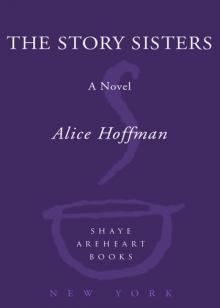 The Story Sisters
The Story Sisters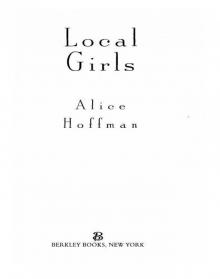 Local Girls
Local Girls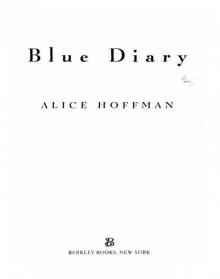 Blue Diary
Blue Diary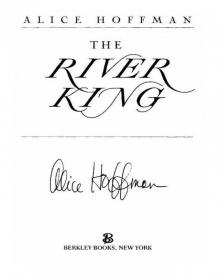 The River King
The River King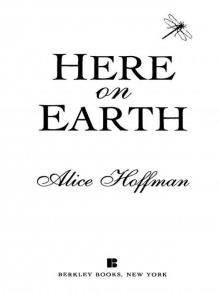 Here on Earth
Here on Earth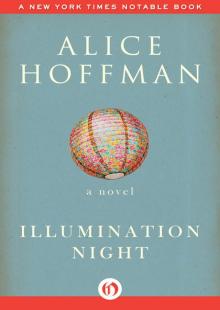 Illumination Night: A Novel
Illumination Night: A Novel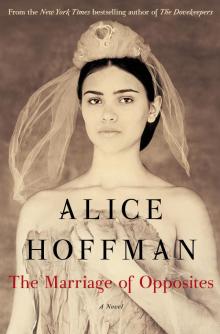 The Marriage of Opposites
The Marriage of Opposites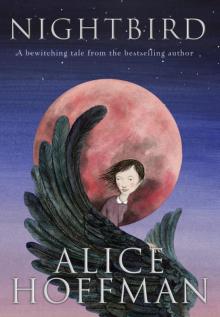 Nightbird
Nightbird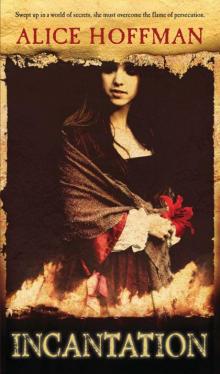 Incantation
Incantation Skylight Confessions
Skylight Confessions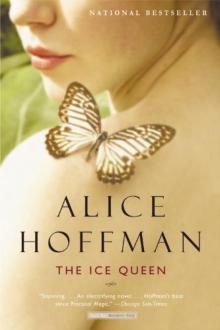 The Ice Queen
The Ice Queen Second Nature
Second Nature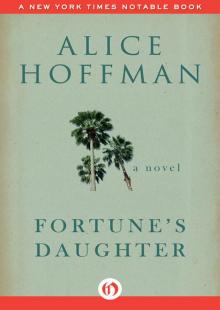 Fortune's Daughter: A Novel
Fortune's Daughter: A Novel Seventh Heaven
Seventh Heaven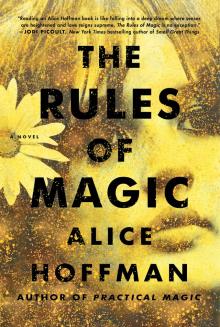 The Rules of Magic
The Rules of Magic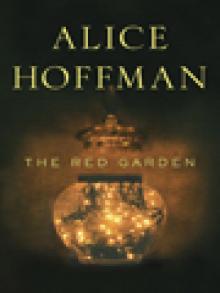 The Red Garden
The Red Garden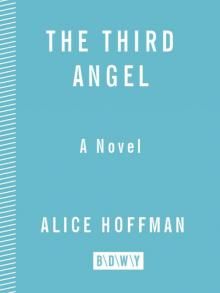 The Third Angel
The Third Angel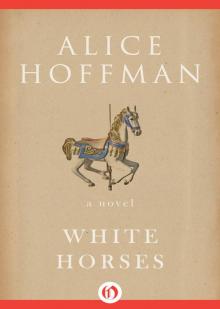 White Horses
White Horses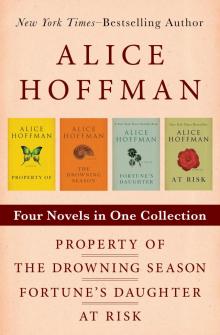 Property of / the Drowning Season / Fortune's Daughter / at Risk
Property of / the Drowning Season / Fortune's Daughter / at Risk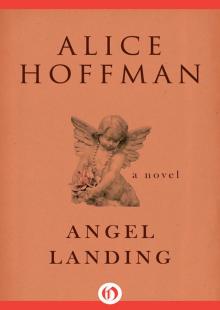 Angel Landing
Angel Landing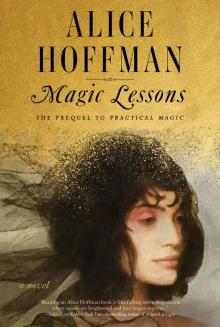 Magic Lessons
Magic Lessons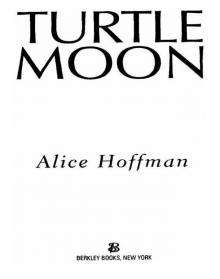 Turtle Moon
Turtle Moon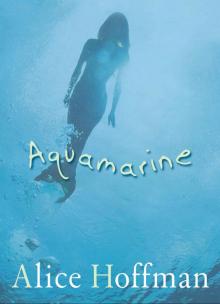 Aquamarine
Aquamarine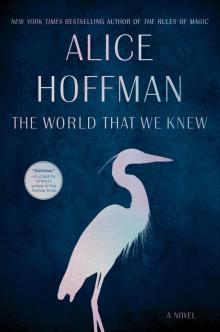 The World That We Knew
The World That We Knew Faithful
Faithful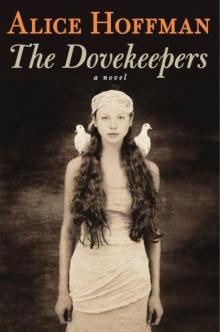 The Dovekeepers
The Dovekeepers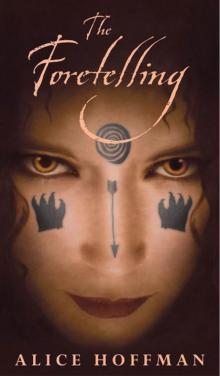 The Foretelling
The Foretelling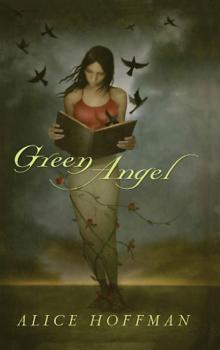 Green Angel
Green Angel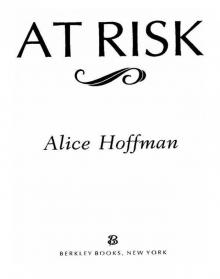 At Risk
At Risk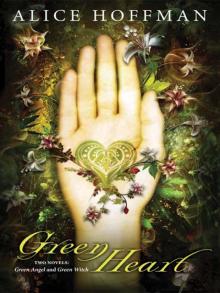 Green Heart
Green Heart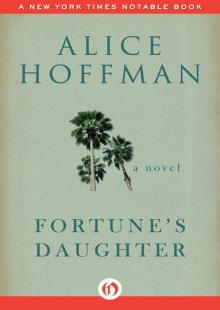 Fortune's Daughter
Fortune's Daughter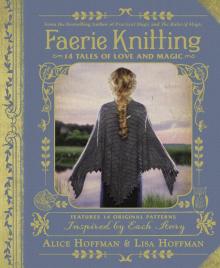 Faerie Knitting
Faerie Knitting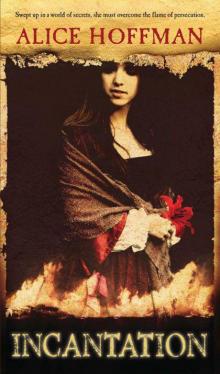 Incantation (v5)
Incantation (v5)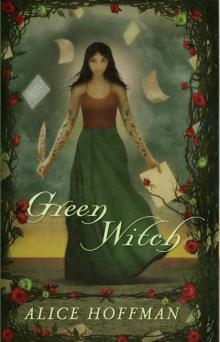 Green Witch
Green Witch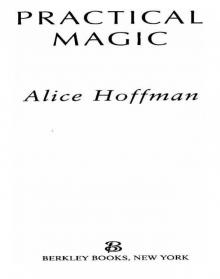 Practical Magic
Practical Magic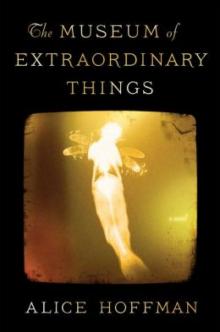 The Museum of Extraordinary Things
The Museum of Extraordinary Things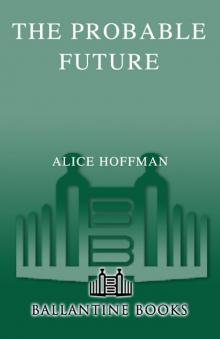 The Probable Future
The Probable Future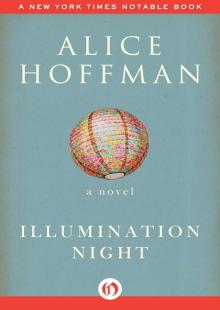 Illumination Night
Illumination Night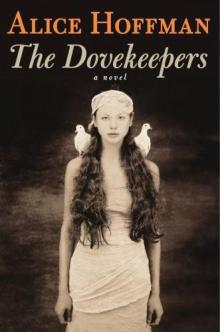 The Dovekeepers: A Novel
The Dovekeepers: A Novel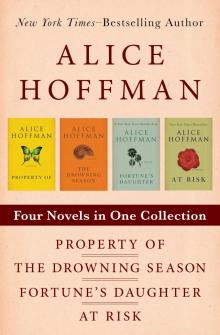 Property Of, the Drowning Season, Fortune's Daughter, and At Risk
Property Of, the Drowning Season, Fortune's Daughter, and At Risk